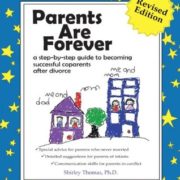One of the most common questions I get from my family law clients is about the difference between a divorce and dissolution. Although they accomplish the same thing, there are many differences between a divorce and dissolution and most of the differences relate to the total amount of money you will spend to terminate your marriage.
A dissolution is often considered the amicable way to terminate a marriage. With a dissolution, the parties come to an agreement on all terms of separation, including: property division, spousal support, child support and parenting time. They put their agreement in writing and they present it to the court. The court will make their agreement an order of the court as long as it finds that both parties voluntarily entered into the agreement, the parties fully disclosed their assets and debts, and it is a fair and equitable division of property. Both parties must cooperate throughout the process and both parties are required to appear at the final hearing. Dissolutions often cost less, especially when the parties have their agreement worked out before an attorney gets involved. Parties can keep their costs low, not only by working out all details of their agreement before meeting with an attorney but also by finding an attorney that will do the work on a flat fee. Although most family law attorneys will not work on a divorce for a flat fee, many do offer flat fees for dissolutions. You will also find that the filing fee is less for a dissolution. In the Cincinnati/Dayton area, you will find that the filing fee is between $250-$350.
Although divorces do not involve an agreement between the parties, not all divorces result in disagreements between the parties. There are two types of divorces: uncontested and contested. Once one of the parties files a complaint, it is considered a divorce. If the responding party files an answer, it is then considered a contested divorce. If no answer is filed, it is considered an uncontested divorce. You may be asking yourself why anyone would file for a divorce if they are not having disagreements about the terms of separation. The answer is that many times people choose to file for divorce because the other party will not cooperate with the dissolution process by signing the necessary forms and going to the final hearing. In those situations, a divorce is a better option, and if the other party does not file an answer, the process will be similar to a dissolution in terms of time and money. If you suspect or know that the other party will not respond to the complaint, you may ask your attorney if he/she will do an uncontested divorce for the same price as a dissolution.
The most expensive way to end your marriage is a contested divorce. The court often sets several pretrial dates in the hopes that the parties will come to an agreement and in the end, most contested divorces do end in an agreement; however it may take a very long time to get to that point. If you find yourself in a contested divorce, you may feel that there is nothing you can do to save money. The filing fee is often between $300-$400 and attorneys often refuse to work on a flat fee. Sometimes the other party is just being disagreeable or has unjustified expectations. You can, however, save yourself some money by finding an attorney that approaches your case with your best interests in mind.
If you find that you are more upset at the other party when you leave your attorneys office than when you went in, it is possible that your attorney is intentionally winding you up to fight so that you spend more on attorney’s fees. If you suspect that you may be in this situation (and believe me, I see it all the time), you should evaluate your expectations and determine if they are reasonable. If your attorney has given you unrealistic expectations, you will be unhappy with the result no matter what happens and you will spend more. You should find an attorney that gives you realistic expectations about your case. An attorney that really has your best interests in mind will not be able to prevent the opposing attorney from using the same tactic to rack up attorney fees but will at least provide a starting point for getting your divorce settled with a fair result at a reasonable cost.
No matter how you decide to terminate your marriage, it is likely that your attorney will have you fill out a long questionnaire regarding every aspect of your marriage. It is important to understand that every question is on that questionnaire for a reason. Your attorney will have to report that information somewhere in the paperwork. If you take the time to make sure that you have filled out each and every section of that questionnaire before returning it to your attorney, your attorney will spend less time following up on incomplete information; therefore saving you money.




